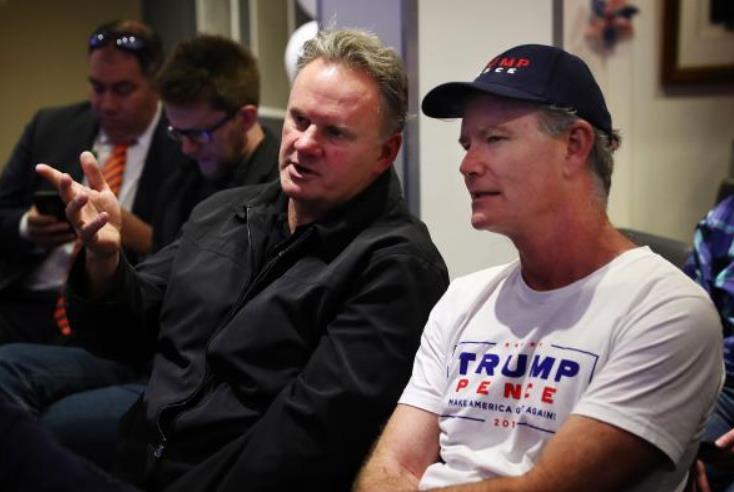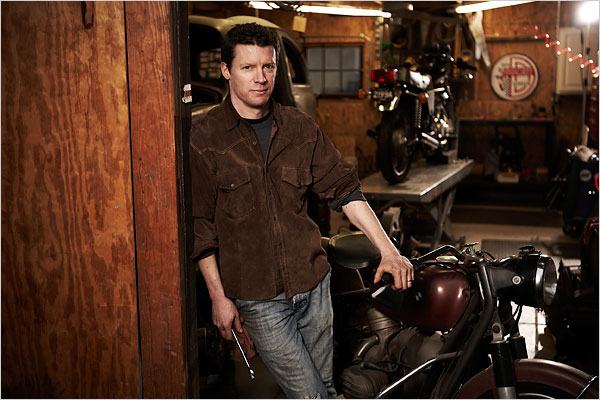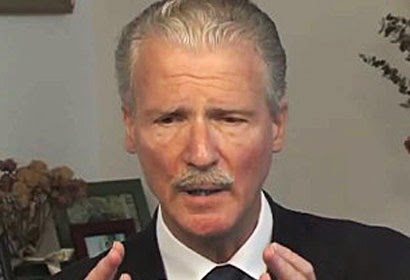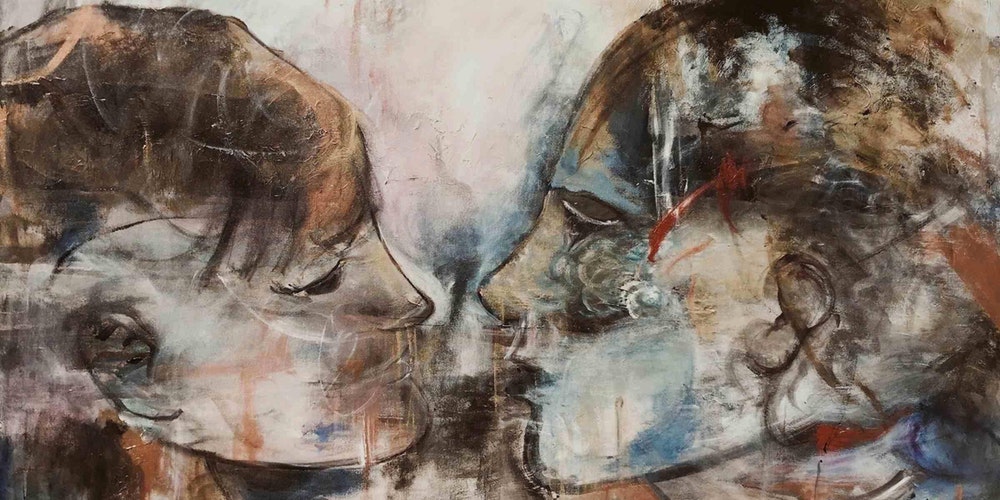A contingent of STF stalwarts attended an event organised by dissidents within mainstream party politics that featured guest speakers Mark Latham and Ross Cameron. They shared ideas about many things, and they came from distinctly different positions, but their general thrust was a warning about where the future lay if progressive ideology was left unchecked.
I have had a significant amount of exposure to Ross Cameron, and he still retained the fire of his younger years, but Mark Latham was an unknown quantity to me. I couldn’t help but note some important features in what he had to say that reflect my concerns for the future role of Paleoconservatism in the public square.
First of all, I have to say, I quite like Latham. He is unpretentious, very entertaining and displays a degree of education without being pompous. You can see the ‘Labor Party man’ for sure, but there’s clearly something else going on. He loves to speak, but that’s okay because it is evident that people also want to listen. I’d certainly go to the effort of dragging myself into the metropolis to see him speak again. However – whilst I had to wait an hour and a quarter for my train – it gave me a chance to formulate some thoughts about a number of matters that caused ‘a disturbance in my force’ as I was listening to them. They reflect my overall concerns with how so many people seem to formulate their conservatism.
We have to start by saying that Mark Latham is not a Conservative and he doesn’t claim to be. He describes himself as a “social democrat”, but to me he sounded very much like an authentic Nineteenth Century liberal. He carries a curious mix of libertarian freedom, paternalism towards the ‘have nots’, and outright refusal to ever wear a wig … even if he were a Whig. He discussed many things during the evening, but to illustrate my concerns I think it most helpful to focus on one particular aspect of his address – identity.
Identitarianism a la Latham

“Identitarian” street art in Western Europe.
Mark Latham made it very clear, initially, that he saw identitarianism as a negative thing. He associated it with the politics of division and ghettoisation – something that caused people to focus on their differences and prevent them from engaging in the formation of community. He also saw Identitarianism as a sin of the “Left”. He specifically cited “Post Structural Marxism” as the ideological source of contemporary attempts to get individuals to re-focus on their identity in order to transcend it. Whether or not there is merit in this philosophical attribution doesn’t concern us here. What I find ponderous is where he took this idea after he expressed it.
Latham was free with the use of the term “Left” without really defining it. However, anyone listening would discern from its use the notion that these “Lefties” were the politically correct “ism” junkies that place regulatory speed bumps in the libertarian’s road to productivity. To borrow a phrase from his co-presenter Ross Cameron, they are people who obsess over controlling spaces.
The problem for me came when I asked myself, if Mark thinks that identity is divisive, then what does he think is cohesive? Clearly he believed in community (although he expressed an economic liberalism that might also clash with his communitarian thinking) but what does he think makes a community? As he spoke and answered questions his conception of community became more and more problematic.
He clearly understood the problems inherent with immigration. In response to a question about the housing crisis in Sydney, he identified the ‘elephant in the room’ as mass immigration driving up demand. He also seemed to appreciate that the notion of immigration as an ‘absolutely essential’ requirement for skilled labour was also a bit of a rort, and led to a constant over supply of workers. However, he didn’t seem to register any social effects from immigration. He stated outright his commitment to multiculturalism.
Multiculturalism of course, means different things to different people. It can mean anything from ‘I don’t want a White Australia’ (i.e., I don’t think people of a race other than mine aren’t people) to ‘As a white Westerner – I have no culture’ (i.e., ‘May I please borrow yours?’). The term has been polarised thanks to ideology, such that often people say that they are ‘multicultural’ when what they really mean is cosmopolitan, liberal, tolerant or even Identitarian (if they are non-white, of course). It has essentially been reduced to an affirmation that testifies to the affirmer not being a ‘racist’. Thus the term has almost lost its meaning. It has become a propaganda phrase – a necessary mantra to avoid time in the gulag.
It was evident that Latham had a very broad interpretation of this word from the way he answered questions. One member of the audience put forward the standard neoconservative line of “we are multi-racial, but monocultural”; thinking it would clarify matters in a sea of head- nodding. He was disappointed. Mark vehemently denied this to be the case and made a point of it. “No, not monocultural at all – multicultural and multiracial”. He expected Australia to be a land where many cultures – fully practiced – existed cheek by jowl. He took some relish in then listing off a series of ‘other cultures’ that he admired (thankfully not just for the food) but for other matters such as the ‘work ethic’ of the Chinese. Many examples were smothered by that awful liberal blanket term ‘contribution’ – which seems to be a rather meaningless phrase that in the end means ‘to not be fully dependent upon the state’. How having a job or business constitutes a ‘contribution’ to civics is beyond me. I can’t imagine Pericles saying to the Athenians ‘Just pay your taxes and you are as much a citizen as I am.’ In any event, Mark was very clear that he wasn’t using the term ‘multicultural’ euphemistically.
Here is where I believe the wheels started to come off the worldview Latham was proposing. We know that he has significant concerns about the Islamification of Australia – on the night he raised the spectre of certain NSW High Schools creating societies within our society. This suggests a certain awareness on his part, that one of the results of a sustained policy of high immigration with a welcoming policy of multiculturalism, is precisely this sort of social dysfunction. This was compounded by his very clear and unequivocal pronouncement that our education system has a lot to answer for in not producing a syllabus steeped in Western Christian values. He went further to suggest that the Nation’s founding was indebted to this Tradition, and that maintenance of its institutions, in proper order, would require its continued adherence.

Paul Gottfried, US paleoconservative historian and critic of establishment conservatism.
How does he reconcile these positions? He acknowledges that maintaining a culture requires institutions and Traditions. He more or less acknowledged the need for a ‘cultural space’ in which this could occur. Well, if that is so – how does he avoid the phenomenon of ghettoisation if he also believes that people should not conform to a monoculture but rather, retain the culture of their ancestry? What purpose does he seek in propagating Western values (whatever they might be) if he wants citizens free to live their lives in a totally ‘other’ cultural tradition? What ought to be stressed is that the dysfunction he identifies is not an anomaly but a direct logical consequence of the underlying political attitudes embraced equally by his critics as well as himself.
Is it because he has a shallow reading of Western Christian values? Does it all boil down to ‘mateship, democracy and a fair go’ to him? It may, because that was the sort of rhetoric he offered when his words begged for an illustrative example. If that is so, then Mark Latham seems to suffer from the disease many other liberals do – they are so deracinated from their own culture that they don’t really know what to hold on to. They become dazzled by foreign culture and easily impressed by it, because they don’t really have any understanding or love for their own. This comes within a whisker of calling Latham ‘uncultured’ – and from what I saw, that would be unjustified and far too harsh an assessment. He is the working man’s friend, probably more at home in a pub sing-along than the opera – but that doesn’t make him uncultured. To start with, such an assessment ignores the existence of folk culture – which is just as critical to civilisation as ‘high’ culture. Something else must be going on here.
Ultimately on this point, he seemed to regard being able to admire foreign cultures as a defining feature of multiculturalism – but I think that is misguided. If anything it is the Identitarian who develops a profound respect for the culture of the other. The progressive visits the other like a tourist and samples it in a grandstanding performance of virtue signalling. Alternatively, it becomes a substitute, because the Progressive registers no understanding of his own culture or Traditions. They describe themselves (and yes, I’ve seen this with my own eyes) as post-cultural.
The Identitarian fiercely guards his own culture’s institutions and Traditions, he registers the concept of Folk and seeks to protect it from disintegration. In doing so, he recognises and admires that spirit in others. We see this occurring in Yukio Mishima’s fiction – as many aspects of High Western culture clearly pervade his imagination. Julius Evola is as deeply fascinated by the early Traditions of Indian and Buddhist civilisations as well as those of Ancient Greece and Rome. Paul Gottfried can appreciate the need for Anglo-American society to protect and guard its distinctly European and Christian origins whilst being a devout and observant Jew. All these men are profoundly aware of their identities and they live them at a very deep level, much deeper than most people. However, they don’t define themselves by what they are not. So, as a result, they can easily admire and even imbibe, what they admire outside of their own Traditions and identity, without feeling as if they are compromising either.
This outcome seems to be what Mark Latham desires – he approaches the question from a place of great sincerity. He spoke as if he had actually experienced profound moments and beauty when engaged with foreign culture. This clearly meant something to him. There was something intellectual and emotional motivating his view. Yet – he registers indentitarianism as a creature of Marxist ideology that creates disunity. Why? A full appreciation of Identitarianism may actually paint for him a perfected picture of a society that is at once more tolerant and secure in its own culture and traditions.
Latham: A Frustrated Identitarian?

Julius Evola, Italian Radical Traditionalist.
An Identitarian would have no time for the Neoconservative position that all are hammered into one unified culture by some sort of ‘voluntary’ decision to join a civic institution. They would reject that adherence to a constitution or legal system can constitute any sort of identity. It is the Identitarian who would resist compulsory hyphenations such as ‘Chinese-Australian’. They would instead pose a similar question to that once posed by Jeremy Clarkson, re Pakistanis in Britain: “What’s wrong with simply being a Chinese living in Australia?”
The Identitarian is far more comfortable with the idea of tourists, guests and eccentrics being among his society (whilst still remaining distinct from the polis) than the average Neocon. The danger that the Identiarian registers comes in the form of artificial devices and abstractions in an effort to cobble together an inorganic unity where one would otherwise never naturally exist.
Is Mark Latham in fact a frustrated Identitarian – yet to come to grips with a full realisation of what that term means? He seemed acutely aware of what it takes to make a genuine community. He must therefore know that to have a community, the ethnic requires expression of their: faith, music, manners, public cultural expression, drama and song – along with the space required for such things to take place. How then does one make such an accommodation without the formation of ghettoes or racially fragmented suburbs?
How does he expect to avoid the very situations he cites as problematic – the level of Islamification at Punchbowl Boys High School? One of the reasons cited in the press for parent complaint and that is alleged to have contributed to the Principal’s dismissal, was the desire to eventually make the school – outright or by default – an “Islamic” school. We know that Mark doesn’t approve of such a development – but neither does he disapprove of how such situations develop. Does he expect a focus on Western Civilisation in the curriculum to neutralise the effects of ghettoisation? How likely will that policy work as a device to ameliorate balkanisation, whether cultural or geographic? Is this therefore a serious attempt to fix a problem that can only expect to get worse with the passage of time?
A possible reconciliation of this conundrum could reside in control of the size and scope of challenges to identity. Perhaps Latham thinks that the horse has bolted. Whilst his preference would have been for a much slower and more integrated immigration system, that’s not what happened. Being a pragmatist – and ready to deal with what is, as opposed to what ought to be – he may simply accept the given situation as his starting point. Similarly, he expressed a fear about the results of reactionary thinking. If he wishes to avoid stoking the fires of racially based politics,his preference might be to engage in measures that he hopes begin a slow dismantling process of the ghettoised metropolis he finds himself in. But that would naturally require a repudiation of the ‘good multicultural’ conceits that are embraced by those who bemoan the status quo, but who don’t want to be slandered by progressive ideologues.
Cognitive Dissonance
I could begin to appreciate his position, but for the fact that the language he used didn’t assist in encouraging his audience to engage in critical thinking. Terms were reaffirmed as ‘comfort’. His language thus entrenched the listener in two opposed and unreconciled positions. Community, identity and Tradition are yoked together with Individualism, Global coalescence and subscription to abstract values. The language didn’t seem to guide one through the maze. Rather, it alternated according to the likes and dislikes of the speaker. He didn’t seem concerned as to whether his worldview assumed the person as tabula rasa or as having innate, immutable qualities, nor was he concerned as to whether Australia’s “Western Values” could survive living in a global village. I could understand these contradictions if they were coming from an Identitarian engaged in a Straussian exercise of hidden speaking. He was however, quite explicit about eschewing any identitarian conclusions that might inevitably be drawn from such contradictions.
I can’t help but think that Latham had succumbed to cognitive dissonance. This is a term coined by Leon Festinger, and used for the purposes of his When Prophecy Fails to explain the psychological process that bridges the gap when what is expected to happen fails to match up with what is actually occurring. The fact that Festinger was writing about cult-like Apocalyptic movements is entirely appropriate when considering the psychological effect of liberal modernity. In Latham’s case, I suspect that he wishes the Multiculturalism of Liberal Modernity well – assuming that it is perfectly capable of working nicely. The disruption that it has caused our society’s adherence to “Western Civilisation” is but an aberration of an otherwise ‘good idea’. He doesn’t seem to recognise the disturbances that are our mutual lament as the symptoms of the disease of liberalism per se – that is the purview of the crusty old Paleoconservative (like me).

Yukio Mishima, Japanese Radical Traditionalist.
Still I believe Latham is a man who wants to see the best in human nature, and genuinely wants to give people their due. I think he genuinely cares about people, he desires to connect with them and share their stories. He has a good heart. He is a clever man who actually reads books and isn’t scared of learning like so many in the political class today. He can hold his own in an intellectual discussion as much as an argument in a pub. If I were a cynic I’d simply say that Latham – like every other politician – just tells people what they want to hear. Consistency isn’t important – it never is for politicians. But I am inclined to giving him credit for what was obvious sincerity in the way he presented his arguments, notwithstanding their internal inconsistencies.
This is a good thing, because, from a Paleoconservative’s point of view, there’s always a point having a discussion, if the other party is prepared to: listen, think, and challenge themselves. I think I can have a discussion with a man like Mark Latham. I wonder if we could ever work on solving problems together? Maybe. In that spirit I will trudge again into that awful modernist nightmare of a metropolis sometime in the future to hear what he has to say. Maybe I can give him a copy of Mishima to read.
– Luke Torrisi is a retired legal practitioner and now an academic researcher and host of Carpe Diem, Sydney’s only explicitly Traditionalist and Paleoconservative radio programme broadcasting on 88.9FM, between 8:00 to 10:00pm, Mondays.





Leave a comment